Little Women

Brief Synopsis
Cast & Crew
Mervyn Leroy
June Allyson
Peter Lawford
Margaret O'brien
Elizabeth Taylor
Janet Leigh
Film Details
Technical Specs

Synopsis
In the small town of Concord, Massachusetts during the Civil War, the March sisters--Meg, Jo, Amy and Beth--live with their mother in a state of genteel poverty, their father having lost the family's fortune to an unscrupulous businessman several years earlier. While Mr. March serves in the Union Army, Mrs. March, affectionately referred to as "Marmee" by her daughters, holds the family together and teaches the girls the importance of giving to those less fortunate than themselves, especially during the upcoming Christmas season. Though the spoiled and vain Amy often bemoans the family's lack of material wealth and social status, Jo, an aspiring writer, keeps everyone entertained with her stories and plays, while the youngest March, the shy and sensitive Beth, accompanies Jo's productions on an out-of-tune piano. The spirited Jo, a tomboy in search of male companionship, strikes up a friendship with Theodore "Laurie" Laurence, the grandson of the March's wealthy, but cantankerous neighbor, James Laurence.
Later that winter, Jo so impresses Mr. Laurence with her forthrightness and her beneficial effect on the brooding Laurie, that he invites the March sisters to a fancy dress ball at his sumptuous home. At the ball, Meg is courted by John Brooke, Laurie's tutor, and Jo consents to dance with Laurie while Amy and Beth breathlessly view the scene from their perch atop the staircase. Mr. Laurence's gruff demeanor is softened upon meeting Beth, who reminds him of the beloved granddaughter he lost, and when he learns of her musical talent, he offers her the use of his grand piano. The beautiful evening ends on a sour note, however, when Amy and Beth overhear the snobbish Mrs. Gardiner and her daughter gossiping about Marmee.
As the weeks pass, Laurie's affection for Jo grows, but Jo rebuffs him as a suitor, claiming that although she loves him as a friend, she will never marry. Meanwhile, Jo attempts to discourage Meg's deepening feelings for Mr. Brooke, fearing that a marriage will break the bond between the sisters.
Spring arrives, and Marmee receives word that Mr. March has been wounded and sent to an Army hospital in Washington, D.C. Jo asks her wealthy Aunt March for Marmee's train fare, but the two have a heated argument when the impatient Jo refuses to address Aunt March with the decorum the proud woman demands. As usual, Aunt March comes through for the family, but not before Jo has had her beautiful chestnut locks cut off and sold in order to pay for Marmee's trip. While carrying out Marmee's work for the poor in her absence, Beth contracts scarlet fever, and the distressed and frightened sisters realize how much they depend upon Marmee. Just as Marmee returns, however, Beth's fever breaks, and the entire family is reunited when Laurie arranges for the surprise return of Mr. March.
A few months later, Meg marries Mr. Brooke and Laurie asks Jo to marry him, but she turns him down, explaining that she is uncomfortable in high society and wishes to devote her life to writing. Greatly disappointed, Laurie leaves for Europe, and Jo, saddened by the seeming loss of both Meg and Laurie, who she considers to be her best friend, moves to New York to pursue her career. While boarding at the home of the Kirke family, Jo meets Prof. Bhaer, the Kirke children's German tutor, who introduces her to art museums and the opera. Prof. Bhaer agrees to read Jo's stories, but Jo is devastated when he later criticizes her work, dismissing it as sensationalistic. Bursting into tears, Jo reveals that she feels abandoned by Laurie and hurt that Aunt March, who had long promised her a trip to Europe, has taken Amy instead. After consoling Jo, with whom he has fallen in love, Prof. Bhaer advises her to write from her heart, and Jo decides to return home where she is needed, for Beth is again very ill.
Upon her return to the now nearly empty March household, Jo learns that her beloved Beth is dying and spends the next few weeks caring for the courageous girl, who bears her suffering without complaint. After Beth's death, Jo assuages her grief by writing a novel entitled My Beth , which she sends to Prof. Bhaer for his opinion. Later, Meg, now the mother of twins, gently informs Jo that Laurie and Amy have fallen in love in Europe and are to be married. Although Jo is happy for the couple, she realizes for the first time how lonely she is and how much she wishes to be loved. A few weeks later, Laurie and Amy return as husband and wife, and the Marchs's joyfully celebrate the family's reunion. The festivities are interrupted when Prof. Bhaer arrives with Jo's novel, which he has had published. However, when Laurie answers the door, Prof. Bhaer mistakenly assumes that Jo has married her friend and politely declines Laurie's invitation to join the party. After Jo catches up to her departing suitor, the two embrace and Prof. Bhaer proposes marriage. Jo happily accepts, then leads her future husband back to the warmth of the house, where her family awaits them.

Director

Mervyn Leroy
Cast
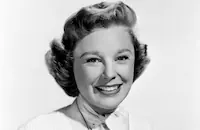
June Allyson

Peter Lawford

Margaret O'brien

Elizabeth Taylor

Janet Leigh

Rossano Brazzi

Mary Astor

Lucille Watson

Sir C. Aubrey Smith
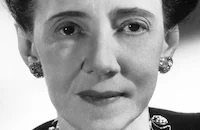
Elizabeth Patterson
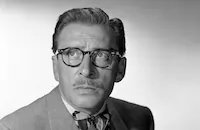
Leon Ames
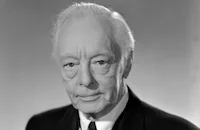
Harry Davenport
Richard Stapley

Connie Gilchrist

Ellen Corby

Will Wright
Harlan Briggs
Frank Darien
Lisa Golm
Scott Hungenberg
Stewart Torres
Maria Torres

Melinda Plowman
Norman Rainey
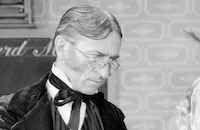
Olin Howlin
Marci Booth
June Hedin
Gloria Moore
Marylyn Thorpe
Dorothy Abbott
Rosalie Calvert
Arthur Walsh
Eloise Hardt
Isabel Randolph
Diane Nance
Clara Jane Karnback
Ralph Peters
Crew
Sally Benson
Jack Dawn
Adolph Deutsch
A. Norwood Fenton
Cedric Gibbons
Paul Groesse
Sydney Guilaroff
Victor Heerman
Edwin Hubbell
Henri Jaffa
Natalie Kalmus
Amalia Kent
Mervyn Leroy
Mervyn Leroy
Tom Long
Sarah Y. Mason
Jack D. Moore
Warren Newcombe
Robert Planck
Walter Plunkett
Al Raboch
John Schmitz
Charles Schoenbaum
Douglas Shearer
Andrew Solt
Walter Strohm
Edwin B. Willis
Ralph E. Winters

Photo Collections
Videos
Movie Clip



Trailer
Hosted Intro
Film Details
Technical Specs

Award Wins
Best Art Direction
Award Nominations
Best Cinematography
Articles
Little Women (1949)
Louisa May Alcott's classic tale of the four March sisters growing up had been a silent film in 1919, but its most famous rendition probably remains the 1933 version directed by George Cukor and starring Katharine Hepburn. That production was the brainchild of RKO Studio Head David O. Selznick, who encouraged screenwriters Sarah Y. Mason and Victor Heerman to stick as close to the original as possible. The result was an Oscar for Best Adapted Screenplay and a success that helped Selznick get backing for other faithful adaptations of the classics, including his production of David Copperfield (1935) at MGM.
By the '40s, Selznick had become Hollywood's top independent producer, thanks largely to the success of Gone With the Wind (1939). He was obsessed with surpassing his greatest hit and also with finding the perfect vehicle for his protege and future wife, Jennifer Jones. So he set out to produce a remake of Little Women starring Jones and the teen-aged Shirley Temple.
There are conflicting stories about what went wrong. Some sources say the production was canceled after costume tests were shot; others say it actually went into production with Mervyn LeRoy directing, but the magic just wasn't there. Whatever happened, Selznick ended up selling the project, including some of the sets, to MGM. There it became a showcase for some of the studio's most promising young players - June Allyson, Peter Lawford, Elizabeth Taylor (in a blonde wig!), Janet Leigh and Margaret O'Brien.
For Allyson, the film was a particular delight. Although at 31 she was a bit old for the role (MGM's publicity department routinely took ten years off her age), she got along with her younger co-stars as if they were sorority sisters. But she also had some more adult joys during filming when she and husband Dick Powell adopted their first child. When word came that the baby had arrived, she raced from the set without asking permission, drove home to hold the new baby for the first time, and raced back before anyone could miss her.
Allyson always joked that she and O'Brien were MGM's champion criers, and when they worked together, the faucets were permanently open. Little Women was no exception. Allyson was so upset after playing O'Brien's death scene, that the studio had to send her home for the rest of the day.
Producer/Director: Mervyn LeRoy
Screenplay: Sarah Y. Mason; Andrew Solt
Production Design: Cedric Gibbions; Paul Groesse
Cinematography: Robert Planck; Charles E. Schoenbaum
Costume Design: Walter Plunkett
Film Editing: Ralph Winters
Original Music: Adolph Deutsch
Principal Cast: June Allyson (Jo March); Peter Lawford (Laurie Laurence), Margaret O'Brien (Beth March); Elizabeth Taylor (Amy March), Janet Leigh (Meg March), Rossano Brazzi (Prof. Baer)
C-122m. Closed captioning. Descriptive video.
By Frank Miller

Little Women (1949)
Quotes
Trivia
The basket that Margaret O'Brien carries around in this movie is the same basket that 'Garland, Judy' carried in The Wizard of Oz (1939).
The snow in this movie is was actually cornflakes.
Notes
This film is a remake of the 1933 RKO adaptation of Louisa May Alcott's novel. Sarah Y. Mason and her husband, Victor Heerman, wrote the Academy Award-winning screenplay for the RKO film, and their adaptation provided the basis for the M-G-M film. A contemporary news item in Daily Variety notes that in March 1948 M-G-M acquired the film rights to Alcott's novel, along with a completed screenplay, from producer David O. Selznick. Contemporary news items in Hollywood Reporter indicate that Selznick began deveoping his version of the film in late 1946, with Jennifer Jones set to star as "Jo." To direct the picture, Selznick had hired Mervyn LeRoy, who was quoted in a April 1949 Los Angeles Times article as having said, "Ever since I have been in pictures I wanted to direct Little Women...my fondest hope would have been to produce it 17 years ago when it was previously made at RKO." Selznick's adaptation was later canceled because of a studio strike, but M-G-M retained LeRoy as the director. Modern sources note that M-G-M used some of the completed sets that were constructed for Selznick's aborted production.
An August 1948 HR news item lists Ginger Hatrick in the cast but her appearance in the released film has not been confirmed. The film marked the screen debut of English stage actor Richard Stapely, who, according to a June 1948 M-G-M News item, was discovered by LeRoy. The film also marked the American film debut of Italian actor Rossano Brazzi. Sir C. Aubrey Smith, whose acting career had spanned four decades, died in 1948; Little Women was his final film. In his autobiography, LeRoy noted that M-G-M substituted ground-up ice for the fake snow that was usually used to create snowy settings in films. LeRoy called the experiment a success and credited the substitution with making the actors in those scenes appear genuinely cold. M-G-M chose Little Women to inaugurate its 25th anniversary program. The film received an Academy Award for Best Art Direction and Set Decoration, and was also nominated for Best Color Cinematography.
Alcott's novel has been adapted many times for the stage, motion pictures, radio and television. The first stage adaptation of Little Women, which opened in New York on October 14, 1912, was written by Marian DeForest and starred Marie Pavey and Alice Brady. The play was revived on numerous occasions, including a 1916 run featuring Paul Kelly, and a 1919 version starring Katherine Cornell. Motion picture adaptations of Alcott's novel include a 1917 British film produced by Moss Pictures, directed by Alexander Butler and G. B. Samuelson and starring Ruby Miller and Mary Lincoln; the 1919 Paramount film directed by Harley Knoles and starring Isabel Lamon and Dorothy Barnard (see AFI Catalog of Feature Films, 1911-20; F1.2566); the 1933 RKO film directed by George Cukor and starring Katharine Hepburn, Joan Bennett, Paul Lukas and Edna May Oliver (see AFI Catalog of Feature Films, 1931-40; F3.2536); and the 1994 Columbia Pictures film directed by Gillian Armstrong and starring Winona Ryder, Gabriel Byrne, Claire Danes, Trini Alvarado and Susan Sarandon.
June Allyson and Peter Lawford reprised their 1949 film roles for a Lux Radio Theatre adaptation of the novel, which aired on March 13, 1949. The first televised presentation of the novel was broadcast on December 16, 1949 as part of the CBS network's Ford Theatre program and was directed by Marc Daniels, with Meg Mundy and Patricia Kirkland in leading roles. A television-movie version of Little Women, produced in 1978, starred Meredith Baxter Birney and Susan Dey. Alcott's sequel to Little Women, entitled Little Men, was first filmed in 1934 by Mascot Pictures Corp., directed by Phil Rosen, with Ralph Morgan and Erin O'Brien-Moore in leading roles. RKO produced an adaptation of Little Men in 1940, directed by Norman Z. McLeod and starred Kay Francis and Jack Oakie (see AFI Catalog of Feature Films, 1931-40; F3.2519 and F3.2520).

Miscellaneous Notes
Released in United States 1949
Released in USA on video.
Released in United States 1949
















